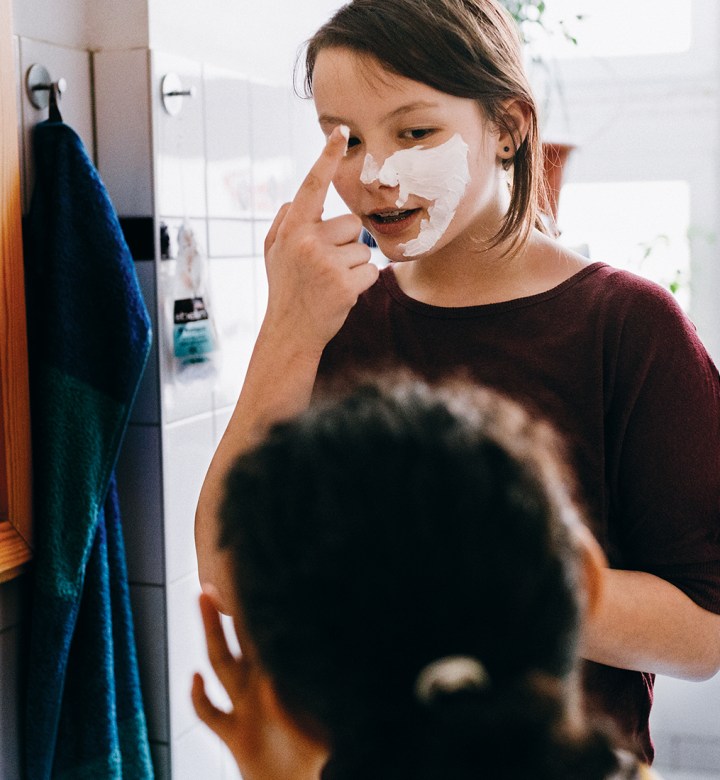If you’ve scrolled through TikTok recently, you may have come across fresh-faced tweens and teens detailing their (extensive) skincare routines and showing off their (also extensive) Sephora hauls. If you haven’t, brace yourselves.
In the last few months, there have been reports of kids as young as 10 years old buying anti-aging products (yes, really) featuring potent ingredients like retinol and exfoliating acids. This surge of interest in skincare from Gen Alpha even caused tween-favorite brand Drunk Elephant (the bronzing drops are a popular pick amongst this cohort) to respond on Instagram with a post on “Can kids & tweens use Drunk Elephant?” (Apparently the answer is yes although the brand cautions younger consumers to “stay away from our more potent products that include acids and retinols—their skin does not need these ingredients quite yet.”)
Perhaps equally troubling are reports of young shoppers showing up en masse to stores like Sephora and Ulta, wreaking havoc on displays and being rude to staff. Search the hashtag #sephorakids on social media and you’ll find plenty of videos complaining about these young consumers.
If you’re feeling alarmed, you’re not alone.



